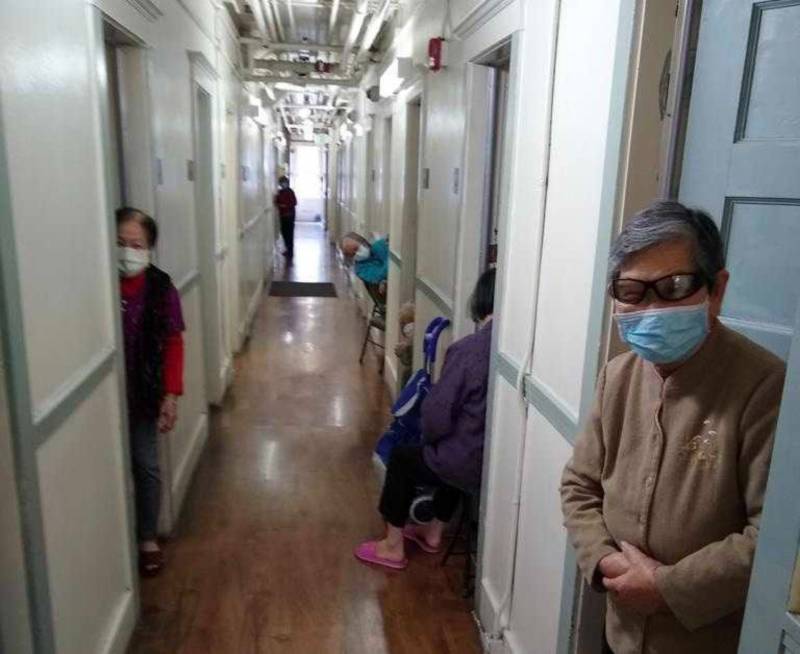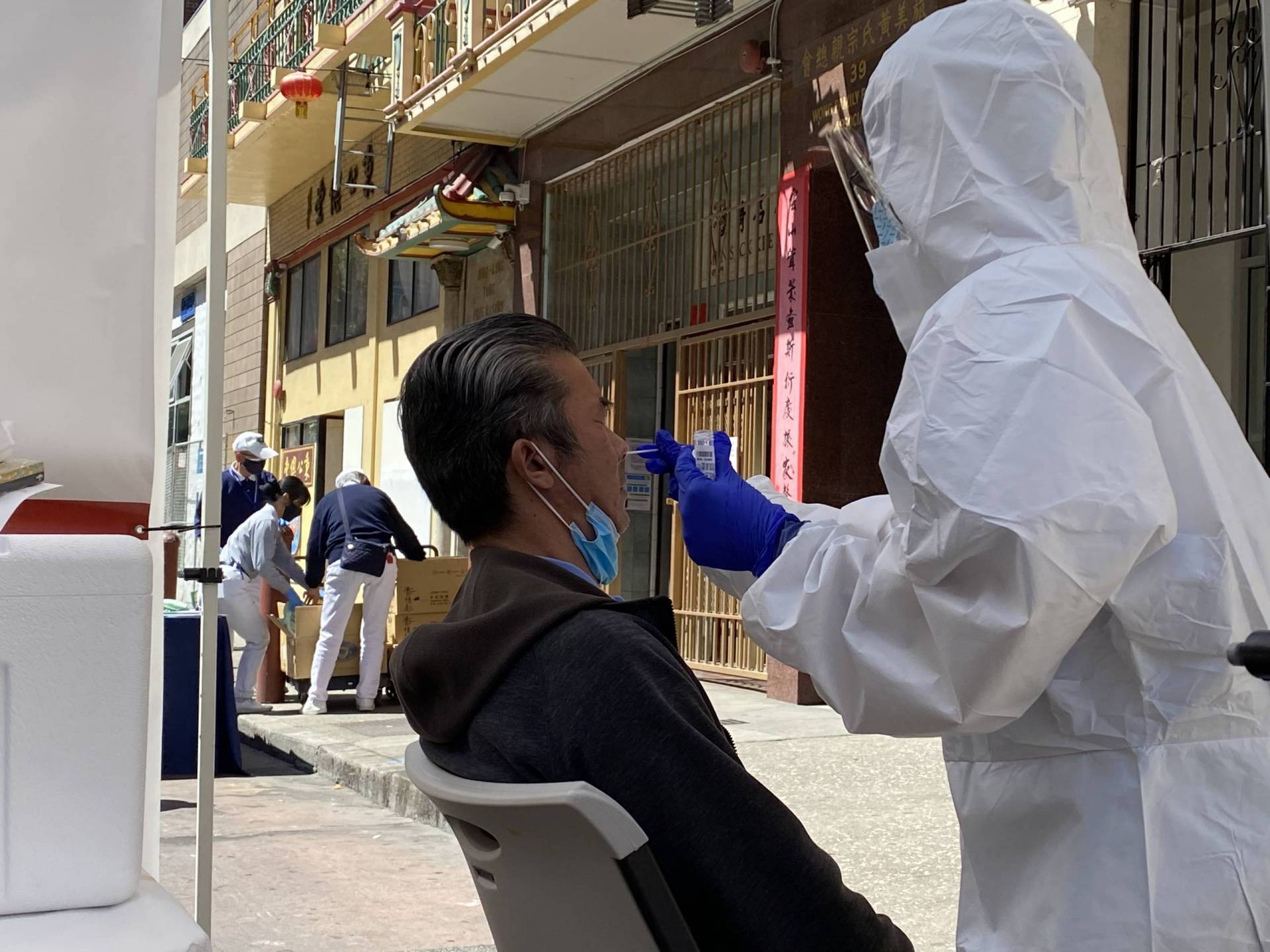Update, 3:05 p.m. Thursday: San Francisco residents living in the city's single room occupancy hotels are now eligible to receive COVID-19 vaccinations, the city's Department of Public Health announced in a tweet Thursday afternoon. SRO residents were previously not included under vaccine eligibility guidelines from the state, which nonetheless included residents of congregate settings.
SF Health Officials Change Course, Say SRO Residents Now Eligible for Vaccine

The move comes in the wake of criticism from city leaders and SRO managers, who encouraged the city's health department to modify local vaccine priorities to include SRO dwellers.
Original post, 4 p.m. Wednesday:
San Francisco's new COVID-19 vaccination priorities aren't helping some of the city's most vulnerable communities, some local leaders say.
State vaccination rules that took effect on March 15 prioritize people living in congregate settings like homeless shelters. But in a move that's leaving some confused and others outraged, those state rules leave out often-impoverished single room occupancy hotel dwellers.
While it's true people living in SROs do have a single room to a household, offering some COVID-19 protection, they often share kitchens and bathrooms with neighbors outside their household.
City leaders and SRO managers are questioning the San Francisco Department of Public Health's interpretation of state health orders regarding congregate settings.
"It's inexcusable to me [to leave SROs out of the vaccine priority]," said Malcolm Yeung, executive director of the Chinatown Community Development Center.
Chinatown CDC operates 11 SRO buildings across the Tenderloin neighborhood and Chinatown, home to some of the city's most vulnerable tenants.
"It’s been putting people’s lives in danger since day one," Yeung said. "We need to get folks vaccinated in high congregate settings."
The state's guidelines on how localities should distribute COVID-19 vaccines have been reworked a few times since they first debuted – and the current iteration does offer localities some leeway. The California Department of Public Health says local health care providers "may use their clinical judgement" to vaccinate people with high health risks.
But in its vaccination planning document, San Francisco argues it has control over "just a portion of the vaccine" coming to the city, compared to other localities, due to its unique structure as both a city and a county, and because there are so many health care providers in San Francisco not directly under city control.
San Francisco's health leadership at the COVID-19 Command Center say their hands are tied by state mandates.
"According to the State, a Single Room Occupancy (SRO) building and its apartments are considered 'lower risk' and are not included as part of the vaccine eligibility criteria for March 15," a spokesperson for the city's COVID-19 Command Center wrote in a statement.
"That said, we know that many residents of SROs in San Francisco live with chronic illness and/or disability and may be over the age of 65; therefore, they would meet the State’s expanding criteria and are eligible for the vaccine right now."

State guidelines, however, have proved somewhat fungible in San Francisco during the pandemic — the city has at times decided to modify state orders to prioritize other groups in need. San Francisco has looser body mass index requirements for vaccinations, for instance, and has made people living with HIV locally eligible for vaccination even though that group is not on the state's list of highest-risk conditions.
There are roughly 500 SRO buildings in San Francisco, housing nearly 30,000 San Franciscans, from the Tenderloin to Chinatown and the Mission District among other neighborhoods, according to the Central City SRO Collaborative.
During the pandemic, the city has carved out specific protections to acknowledge the difficulty of quarantining from COVID-19 in SRO buildings, and offered janitorial services, cleaning supplies, face masks, hand sanitizer and toilet paper to SROs. The city also offers alternative housing like hotels to suspected and confirmed COVID-19-positive patients who can't quarantine well enough in SROs.
To date, 1,209 people living in SROs have tested positive for COVID-19, spread across 264 SRO buildings, with 15 deaths as a result of the virus, according to the city's COVID-19 dashboard. About 400 people living in SROs have stayed at a city-provided isolation and quarantine site.
Dr. Jian Zhang is the CEO of Chinese Hospital, which has served Chinatown since 1925. While she acknowledged there has been a lot done to help SRO residents, she said those were also hard-fought wins by the community to obtain more help from the government.
When San Francisco's shelter-in-place order first began last year, she toured Chinatown SRO buildings to assess their pandemic vulnerability. Zhang began to imagine the possibility for viral spread in tight living quarters with little opportunity for quarantine.
"I actually walked through the SROs, tears literally came out," Zhang said. "You have an entire floor of 16 or more living on one floor. You have one bathroom, one kitchen. How is it possible to social distance? There's no way."
PBS NewsHour highlighted that effort in July. SRO resident Yongfaz Zhu told reporters in Cantonese, through a translator, "We have little space in here besides the bed. We don't have our own kitchen, we don't have our own restroom."
Zhang quickly wrote a grant proposal for free, robust testing in her community, including at SROs. While those efforts aided in preventing large community outbreaks, Zhang said prioritizing a vaccine is still necessary.
"Nobody can predict which SRO will have it, or whether we can control it on a timely basis," Zhang said. "Vaccines are the best way to prevent it from happening."
Watch PBS NewsHour coverage of the effort by Zhang and others to protect Chinatown from COVID-19 spread:
Chinatown CDC also organized a free cooked-meal program for SRO tenants so they wouldn't have to gather in their kitchens and risk spreading COVID-19.
Local officials have noticed San Francisco health leadership's hesitance to modify local vaccine priorities for SRO dwellers.
"It should be up to us to define what a congregate setting is in our city," said Supervisor Matt Haney. The need is urgent, he said.
Haney added, "If you look at a map, the Tenderloin has the highest case rate over the last 30 days. That's largely because people in this neighborhood live in tighter living environments like SROs that put them at greater risk of exposure."
Supervisor Aaron Peskin agreed that the city should prioritize vaccinations for SRO residents.
"I think SROs are an incredibly obvious example of congregate living," Peskin said.
"I don't care if the state says we can't give them vaccines, DPH needs to do it," he said. "Because of the state's guidance, California has become the equity laughing stock of the nation [in vaccination], it's time for DPH to take this into their own hands."
Besides, Peskin said, "What's Gavin Newsom gonna do, call the police?"
KQED's David Marks contributed to this story.
